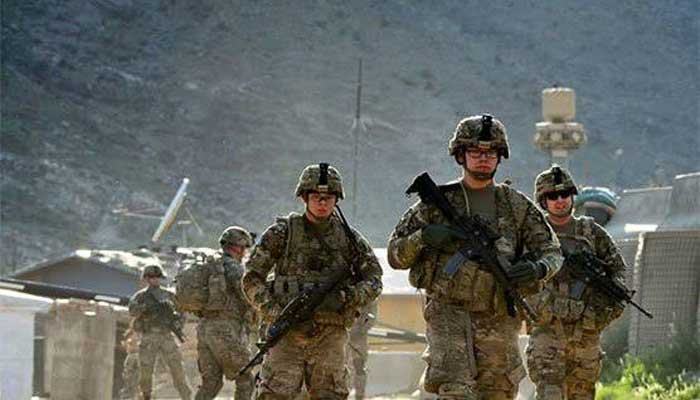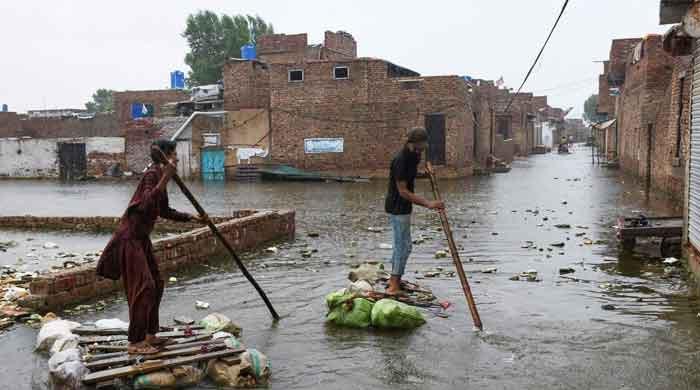Is Afghanistan preparing for war instead of peace?
Ceasefire violations on Eid holidays a clear sign that Afghan government, Taliban are not that serious about dialogue
May 27, 2021

After a brief respite, violence in Afghanistan has exacerbated again and the bloodshed is a direct challenge to international efforts being made to initiate an intra-Afghan peace dialogue.
Thus, the question to be asked is why are warring factions in Afghanistan preparing for a devastating war, instead of lasting peace?
The answer lies in the distrust between the Afghans and the regional and international powers involved in the peace process.
The cancer of distrust has spread to such an extent that even a three-day ceasefire witnessed severe violations and resulted in the deaths of two dozen people during Eid holidays. This is a clear sign that the Afghan government and the Taliban are not that serious about dialogue.
Read more: Afghan Taliban warn neighbouring countries against allowing use of soil for US bases
But what about those, who are encouraging both factions to talk? Are they committed to peace in Afghanistan?
For the United States of America, the clock is ticking as the extended withdrawal date - September 11 - is fast approaching.
At present, Washington appears more focused on finding new bases to fly drones and station its ground forces than pursuing reconciliation in the war-torn country.
In the last few months, the United States has approached central Asian countries for repositioning of its troops. These countries include Tajikistan, Uzbekistan, Kazakhstan and possibly Kyrgyzstan as well, as per media reports. Some of them had already housed the U.S. troops during the start of the Afghan war in 2001, but abruptly ended the deal almost a decade later.
Interestingly, other than Uzbekistan, these countries either border Russia, China or Iran. At the top of it, Russia has its bases in Kyrgyzstan and Tajikistan.
Tajikistan is unique in a sense that it also reportedly has some Chinese security forces on its soil.
Read more: Pakistan has played important role in supporting Afghan peace process: Pentagon official
For the US to be looking to set up bases in the neighbourhood is a strange development for Moscow and Beijing. After all, it has taken two decades for the US to commit to withdrawing forces from Afghanistan. Even then, drones it seems may continue to hover above the country for surveillance.
And it is for this very reason that Russia is accelerating a parallel peace process. It is supporting inter-Afghan talks as well as encouraging members of the Shanghai Cooperation Organization (Russia, China, Pakistan, Kazakhstan, Kyrgyzstan, Tajikistan, Uzbekistan and India) to support their peace move.
China also wants Washington to withdraw “responsibly”, as it fears that the spillover effect of utter chaos in Afghanistan may lead to instability in the region, which is why Beijing is equally pursuing peace in coordination with Moscow and Islamabad.
As for Pakistan, this volatile situation is a double edged sword.
On one hand, India is being given more role in the region and on the other hand Dae'sh is gaining a foothold in the bordering provinces. Furthermore, Islamabad’s efforts for reconciliation are being reciprocated by unprecedented accusations from Kabul.
Afghanistan President Ashraf Ghani has gone to extreme ends by appealing to even Germany to impose sanctions on Pakistan for not fully supporting his agenda. His provocative demands have come as a shock to all who had recently seen him praising the Pakistani leadership for facilitating the peace move.
Read more: Pakistan will play important role in future for peace in Afghanistan: Joe Biden
Ghani clearly wants to incite Pakistan and later blame it for the instability in Afghanistan. As a matter of fact, he is presiding over a country where the Taliban are taking over one district after another by laying siege for months. Can this complete inaction from the Afghan forces in defending their own areas of control be blamed on Islamabad? Certainly, not.
In the end it seems that war may be inevitable in Afghanistan. Unfortunately, no matter who the Afghan government blames, the victims of the war will be the Afghans.











